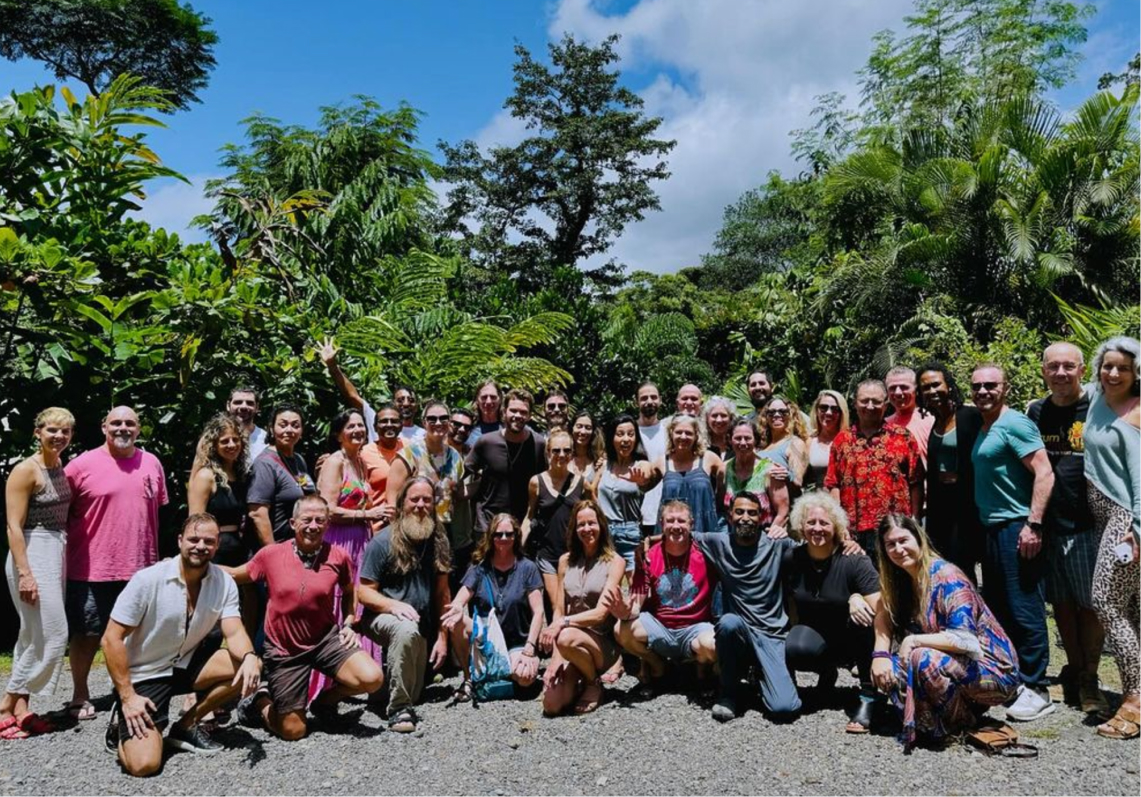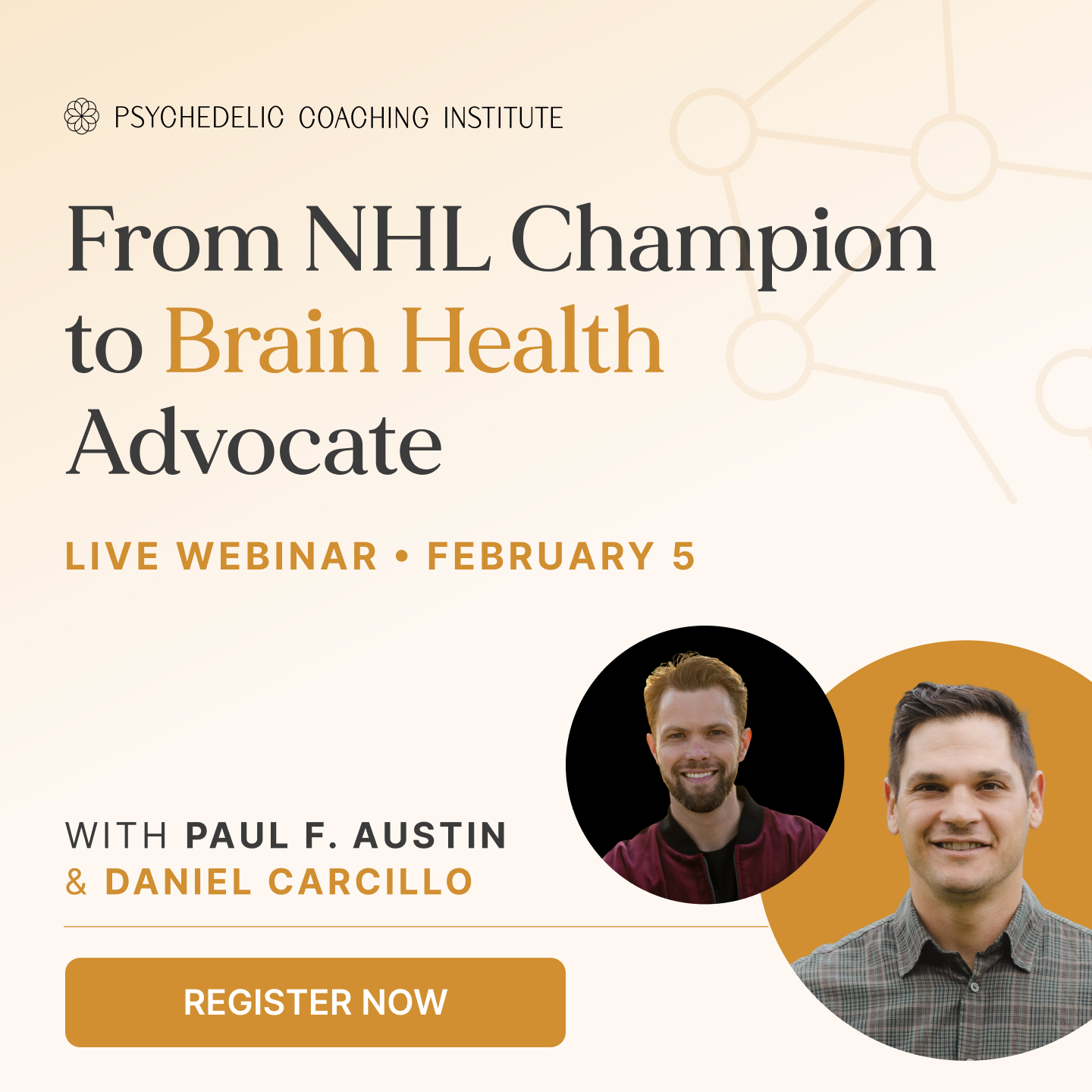The benefits of psychedelic integration coaching are clear for anyone working with psychedelic medicines. Our community is rich in first-hand experiences from people who have sat with psychedelics and experienced substantial mental and emotional benefits. But they’re not the only ones with something to gain.
Psychedelic integration coaches can also benefit from adding this skill to their repertoire. Whether you’re a life, relationship, wellness, or executive coach, learning the tenets of psychedelic coaching could enhance your personal and professional development, providing the following benefits.
Psychedelic Integration Training and Personal Growth
In episode 241 of the Psychedelic Podcast, medicine facilitator and integration coach Adrian Lozano shared his story with psychedelics and integration coaching. He described his journey with plant medicines, one he began after struggling with depression and anxiety. Psychedelics became the catalyst for personal growth and led him toward our Practitioner Certification Program.
He realized he had to use his own experiences to help others on their journey, saying, “You can only take someone as far as you’ve gone yourself,” and you can only “sit with them in the darkness” when you’ve experienced it yourself.
It’s a mindset shared by many psychedelic integration coaches. They experience the healing potential of plant medicines and seek to help others do the same.
The need to help others and take them down similar paths is one of the main reasons that people follow psychedelic coaching certification programs. They want others to experience what they experienced, knowing just how beneficial psychedelic therapy can be.
Even coaches with no prior experience with psychedelics can still tap into these experiences and use them to help their clients. There are thousands of online reports from people who have journeyed with psychedelics like LSD, ketamine, MDMA, and magic mushrooms, and they provide invaluable insights for dedicated coaches seeking to add another string to their bow.
Professional Growth Through Executive Coaching
Plant medicines like ketamine and psilocybin are commonplace in the business world, with entrepreneurs like Elon Musk and Sergey Brin both admitting to regular experiences. There are even stories of executives at major firms throwing psychedelic parties, and these plant medicines have become a major feature of life at Silicon Valley firms.
For the most part, plant medicines are being used to promote innovation and creativity, an idea supported by studies that suggest compounds like LSD and psilocybin can influence creative cognition by “reducing conventional, logical thinking, and giving rise to novel thoughts”.
There is a huge demand for psychedelic coaches in these circles. As more people realize the potential of plant medicines and laws become more relaxed, that demand will only increase.
By tapping into this market, coaches can make invaluable connections to inclusive executive networks, rubbing shoulders with the country’s most successful entrepreneurs and reaping innumerable benefits.
The Financial Benefits of Being a Psychedelic Integration Coach
According to a few dozen salaries submitted to Glassdoor, a psychedelic integration coach can expect to earn anywhere from $50,000 to $150,000 per year, but these figures are based on average salaries from contracted employees. Many psychedelic coaches are self-employed and target a wide range of clients, charging anywhere from $100 to $200 an hour.
Reputable psychedelic coaches focusing on executive clients often charge much more for their services and earn a far more significant sum than self-employed coaches. Coaches are in demand right now, so skilled individuals can expect to receive a steady flow of clients and can structure appointments around their schedules.
The longer they work and the more clients they acquire, the more money they will make. Coaches can enjoy a great deal of personal and professional freedom, with plenty of growth opportunities.
Exploring a New and Exciting Treatment
Psychedelic coaches are at the forefront of innovation in the realm of mental health and personal growth. Humans have been using psychedelics for millennia, and they have played a significant role in traditional medicines and shamanic rituals.
Archaeological evidence suggests these medicines were used at least 3,600 years ago, and if you subscribe to the somewhat controversial stoned ape theory—the idea that the human brain evolved partly because of psychedelic use—their history and importance could be much greater than that. But it’s only in the last few decades that we’ve begun to unlock the potential of these drugs and understand the way they interact with our emotions and memories.
A meta-analysis from 2020 found that subanesthetic ketamine doses could benefit those with treatment-resistant major depressive disorder (MDD), highlighting the “efficacy of ketamine as rapid-acting pharmacotherapy for patients with MDD”.
A 2024 analysis from the British Medical Journal found that psilocybin could also help to treat depression, and psychedelic-assisted therapy has also been studied as a potential treatment for post-traumatic stress disorder (PTSD) by helping users to develop self-compassion, improve social engagement, and build a stronger tolerance for unpleasant memories.
Summary: Level Up With Psychedelic Integration Training
The Third Wave community is full of positive, life-affirming, and life-changing psychedelic experiences. Not too long ago, entrepreneur Jake Hyten shared an experience that involved severe alcoholism to the point he “drank [his] own vomit to stay drunk because the liquor stores were closed”. He was successful. He had money. But he continued to search for answers in the bottom of the bottle until he discovered psychedelics and felt the spiritual and emotional awakening he had been waiting for.
We hear stories like this every week, and we’ve been hearing them for years. As a psychedelic coach, you can work directly with people like this, help them on their journey and be rewarded financially and spiritually. You get to experience these life-changing moments first-hand, and it’s that kind of rare job satisfaction and personal fulfilment that’s driving so many coaches to take up psychedelic coaching.
If this sounds like something you’d be interested in, check out our Practitioner Certification Program.
People Also Ask
How much can a psychedelic integration coach make per hour?
It depends on the experience of the coach, but most charge anywhere from $100 to several thousand dollars per session.
Do you need experience with psychedelics to become a coach?
No. You don’t need any experience with psychedelics for the same reason a relationship counselor doesn’t need to have experienced a broken marriage or other relationship issues.
What is the main benefit of being a psychedelic coach?
It depends on your goals. For many, it’s the opportunities for personal growth and the ability to help others. But the financial benefits are also pretty special!






